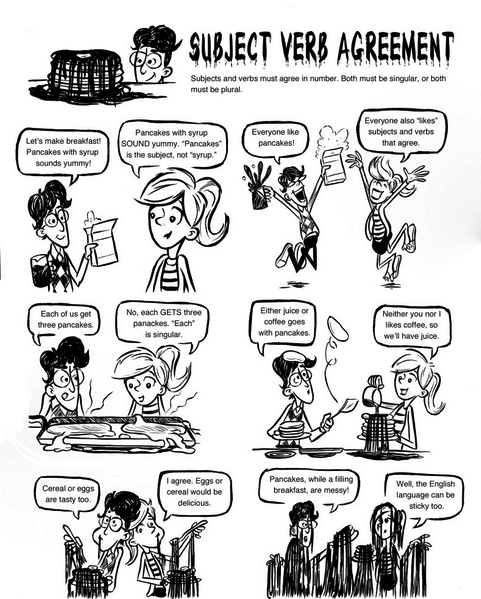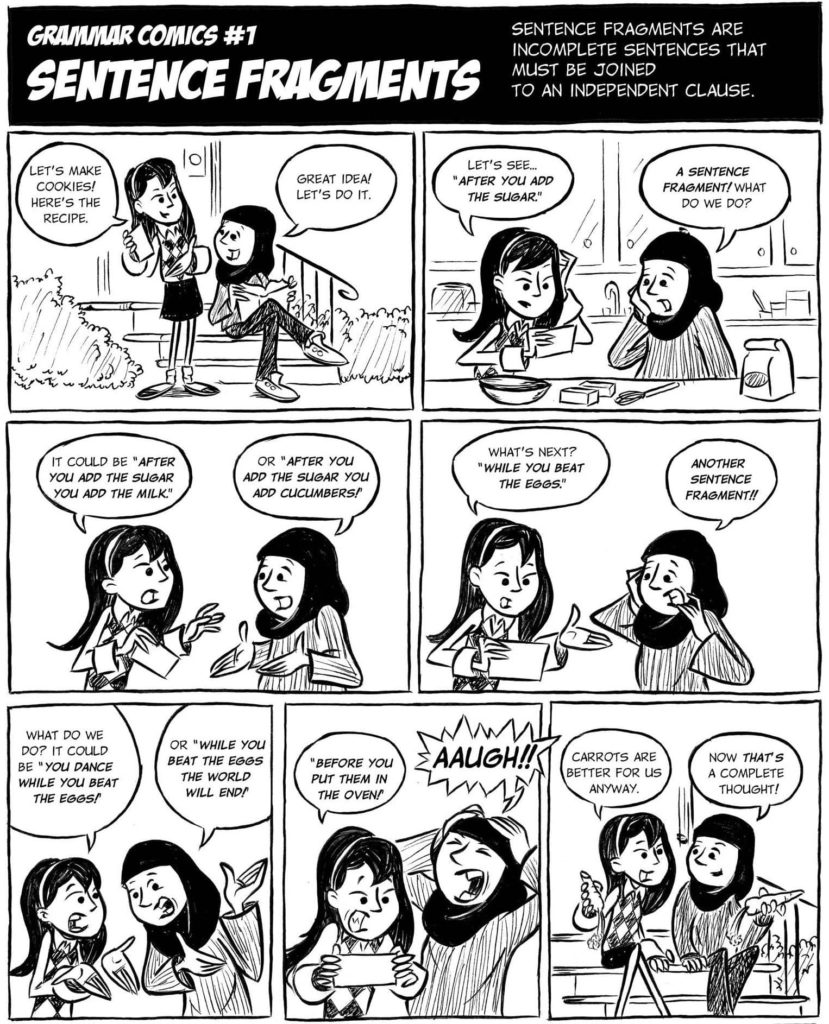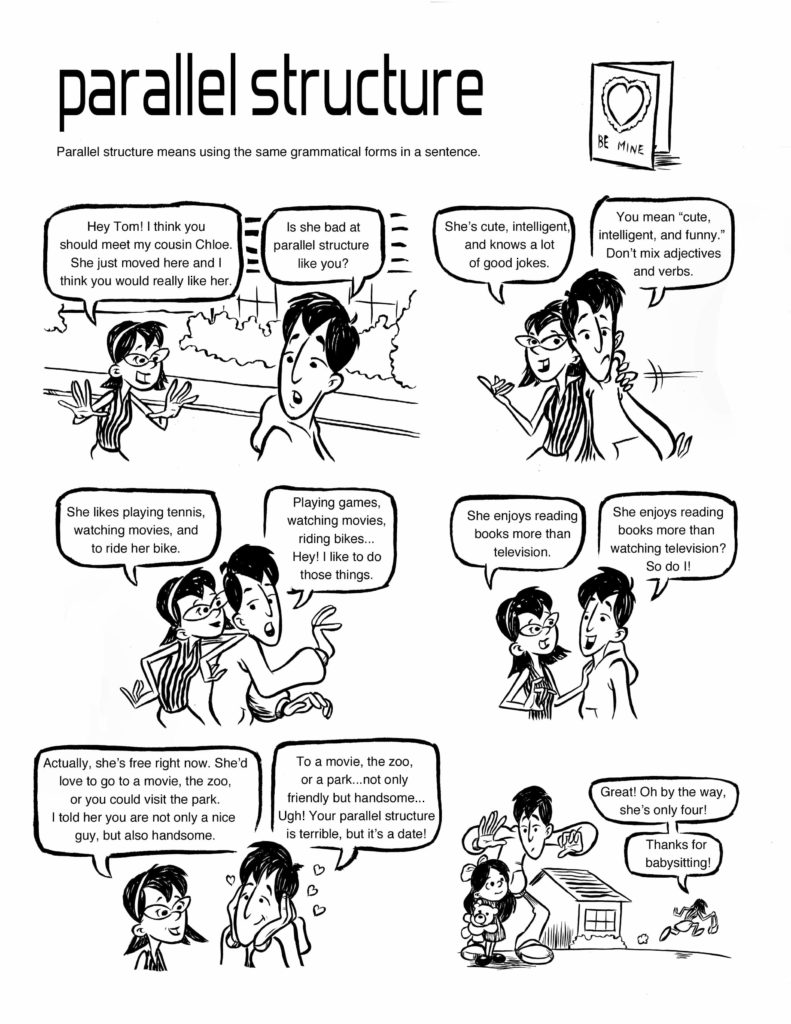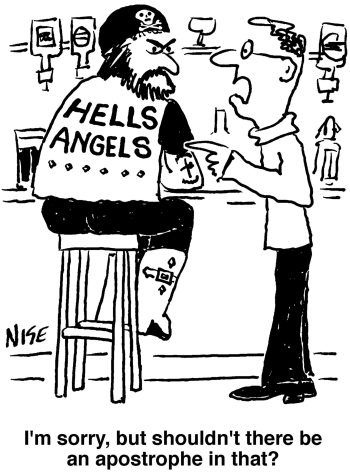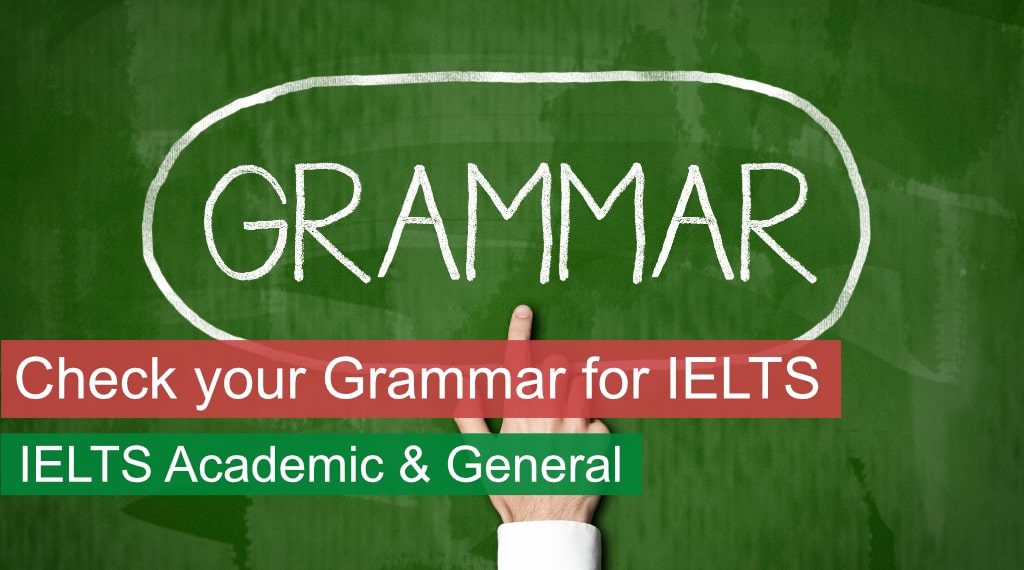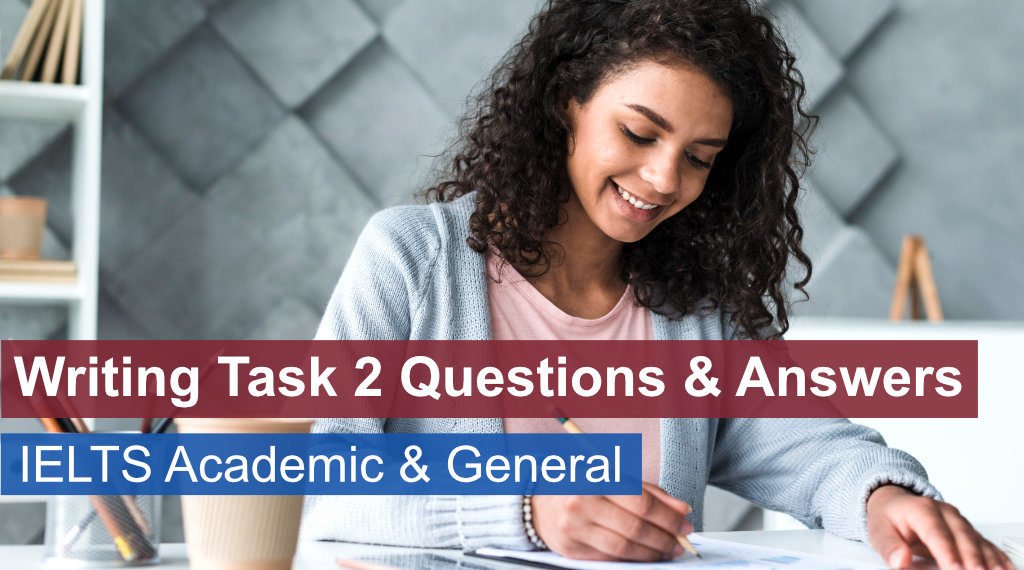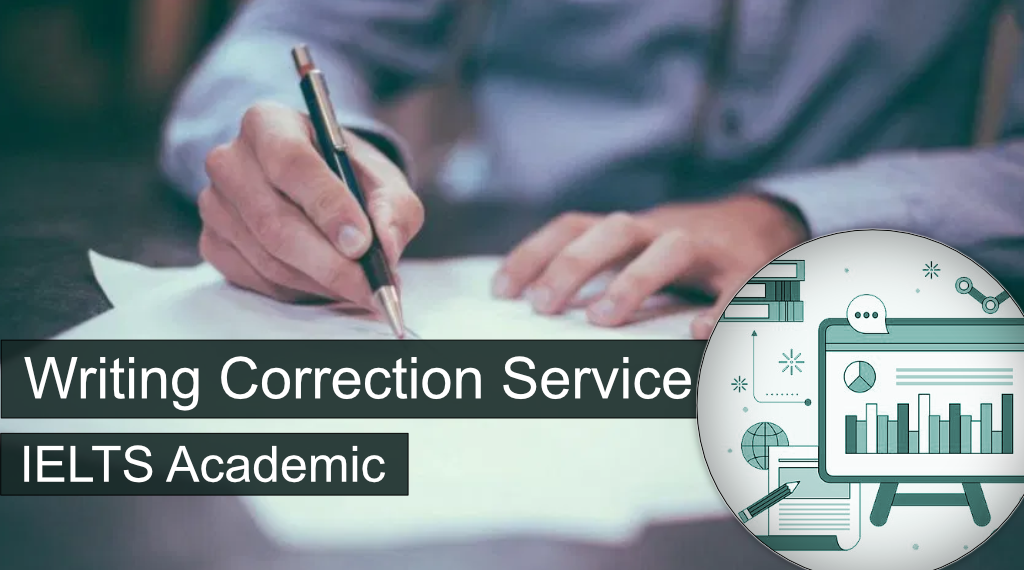Top Grammar Mistakes
IELTS Writing Task-2

By Rachel Watson
Common Grammar Mistakes in IELTS Writing Task 2
Every IELTS candidate has to deal with common grammar mistakes in IELTS Writing Task-2. It’s extremely important to use correct grammar because it is one of the criteria of on which your writing answers are assessed in the IELTS exam. Therefore, you must know about these common grammatical mistakes and how to avoid them. But don’t worry, we’ve got you covered in this article.
Common grammar mistakes come in many forms and happen to everyone, even native English speakers. There are many types of grammatical mistakes such as sentence structures, verb tenses, etc. Even something like a misplaced comma could completely change the meaning. For a quick example, let’s compare “Let’s eat son” and “Let’s eat, son”.
The most common grammar mistakes and how to avoid them
The same goes for the plural. Use a plural verb when a sentence’s subject contains many nouns linked by the word ‘and’. The same applies to pronouns linked by the word ‘and’.
Incorrect: He and his classmates is at the movie.
Correct: He and his classmates are at the movie.
Using singular verb when there are several nouns or pronouns joined together by ‘or’ or ‘nor’.
Incorrect: The laptop or the phone are under the table.
Correct: The laptop or the phone is under the table.
When a sentence has two or more subjects connected, the verb should agree with the subject that is nearest to it. (Notice that this only applies in the case of ‘or’ or ‘not’)
Incorrect: The boy or his friends runs every morning.
Correct: The boy or his friends run every morning.
Doesn’t is the shortened form of ‘does not’, you should use it only in the case of a singular subject. Don’t is the shortened form ‘do not’ and you should only use in the case of a plural subject. In the case of pronouns ‘I’ and ‘you’, do not use these contractions.
Incorrect: He don’t like it.
Correct: He doesn’t like it.
A phrase that comes between the subject and the verb can mislead you. The verb always agrees with the subject of the sentence, not with the subject of the phrase.
Incorrect: One of the cans are open.
Correct: One of the cans is open.
There are some pronouns that are always singular, such as ‘each’, ‘each one’, ‘either’, ‘neither’. ‘Everyone’, ‘everybody’, ‘anybody’, ‘anyone’, ‘nobody’, ‘no one’, ‘somebody’, ‘someone’ are pronouns too. They need a singular verb.
Incorrect: Either are correct.
Correct: Either is correct.
‘Civics’, ‘mathematics’, ‘dollars’, ‘measles’, and ‘news’ are nouns that need singular verbs.
Incorrect: The finance news are at eight p.m.
Correct: The finance news is at eight p.m.
Incorrect: Fifty dollars are a lot here.
Correct: Fifty dollars is a lot here.
‘Scissors’, ‘tweezers’, ‘trousers’, and ‘shears’ are nouns that must go with plural verbs. (Well, you know, this is correct regarding technical details. There are two parts in these things.)
Incorrect: These scissors is in the store.
Correct: These scissors are in the store.
The subject should always follow the verb in sentences starting with “there is” or “there are”. As “there” is an adverb used to state the existence of something, the verb agrees with what follows.
Incorrect: There is many questions
Correct: There are many questions
Collective nouns are nouns that imply a group of individuals, such as ‘group’, or ‘board’. They are singular and need a singular verb.
Incorrect: The group have decided on a new policy
Correct: The group has decided on a new policy
‘With’, ‘together with’, are expressions that don’t change the number of the subject. ‘including’, ‘accompanied by’, or ‘as well’ are on it as well. If the subject is plural, the verb is too, and vice versa.
Incorrect: The President, together with his wife, are travelling to England.
Correct: The President, together with his wife, is travelling to England.
Introductory clauses more often than not need a comma, but that’s not always the case. Therefore, have a look at the guidelines below:
After an introductory clause.
Incorrect: In case you haven’t noticed I didn’t pass the exam.
Correct: In case you haven’t noticed, I didn’t pass the exam.
After a lengthy introductory prepositional phrase or more than one introductory prepositional phrase.
Incorrect: Under the pile of books we found his wallet.
Correct: Under the pile of books, we found his wallet.
After introductory verbal phrases, some appositive phrases, or absolute phrases.
Incorrect: Trang an only child requires a lot of attention.
Correct: Trang, an only child, requires a lot of attention.
If there is a distinct pause.
Incorrect: You are a doctor aren’t you?
Correct: You are a doctor, aren’t you?
To avoid confusion.
Incorrect: Red black and blue are my favourite colour.
Correct: Red, black and blue are my favourite colour.
Sentence fragments are groups of words that seem to be sentences but they aren’t. A sentence fragment fails to be a sentence because it can’t stand on its own. To be a sentence, groups of words must have at least one independent clause. For example, “I like him” is an independent clause.
Sentence fragments don’t have an independent clause but dependent phrases and clauses. On a glance, fragments seem like sentences because they begin with a capital letter and end with a period. If you look closely, it will be obvious that these ‘sentences’ do not form a clear thought. Below are some of the reasons why:
- The sentence describes something but lacks a subject-verb relationship.
- The set of words has most of what a right sentence should have but lack a part of verb string.
- The statement has a subject-verb relationship, but another idea has made it lesser. For that reason, it cannot stand by itself.
No Verb
Fragments: A movie with a heart-breaking plot and deep thoughts.
Revision: He is watching a movie with a heart-breaking plot and deep thoughts.
No subject:
Fragments: For showing up on a rival show Gordon Ramsay got fired.
Revision: Gordon Ramsay got fired for showing up on a rival show.
Run-on sentences occur when the writer connect two main clauses without punctuation. A run-on sentence consists of two parts, either one of which can stand on its own (or independent clause). I have to note that the length of a sentence has nothing to do with the fact that it’s run-on or not. Fused sentences usually occur in the following cases:
- When the second of two independent clauses consist of a pronoun that links it to the first one.
- When an independent clause gives an instructive act based on the prior one.
Example:
Incorrect: He tried to sneak out of the house her parents saw him leaving.
Correct: He tried to sneak out of the house but her parents saw him leaving.
Parallel structure is the same pattern of words used to show the equality of things. Parallel structure is usually joined by using coordinating conjunctions such as “and”/” or”. This is one of the most common grammar mistakes that beginners make.
This grammar mistake is easy to correct. Here is a tip to try out. Scan your papers for words like “and” or “or”. Check on each side to see if you have joined the parallel ones. If not, join them.
Example:
Incorrect: He wanted to study programming, engineering, biochemist, and research scientist.
Correct: He wanted to study programming, engineering, biochemistry and research science.
1 The present tense
Also called the present simple, it’s usually used in the following cases:
- To describe things that are always and always true or general statements of facts (The sun is hot)
- To talk about habits. (I always watch a movie on Saturday)
- To discuss a certain future and/or subordinate clauses. (The train arrives at 6 p.m.)
2 The past tense
Its main uses are as follows:
- To refer to an event that happened once and is now finished. (I met him yesterday.)
- To describe an action that began in the past and finished in the past. (She called me again and again.)
3 The future tense
Here are the main situations in which we use the future tense:
- To give or ask information about the future. (I’ll have it done by Thursday.)
- To make promise or threats, or to refer to conditional situations, which might happen. (or not). (I’ll give you a life if you call me.)
- To talk about things that are likely to happen in the future, but are not absolutely certain. (I think she’ll retire soon.)
There are also two more types of tense: the continuous and the perfect.
4 Continuous
Also known as Progressive tense, we use these tenses to talk about actions that continue for a period. There are three important continuous tenses.
4a. The present continuous
- To describe an action at the moment of speaking. (I’m studying.)
- To discuss something in progress. (Our company is making progress.)
- To talk about a planned future. (I’m spending the Christmas and Thanksgiving with my parents.)
4b. The past continuous
- To talk about an action that was happening when another one occurred. (I was sleeping when she sang.)
- To talk about an action that was in progress in the past. (I was studying.)
4c. The future continuous
- To talk about an action that will be in progress at a time in the future. (I will be working here tomorrow.)
5 Perfect
We use perfect tenses to talk about completed actions at the present or at a specific point in the past/future.
5a. The present perfect
- To talk about an action that took place at an indefinite time in the past. (I have lost my phone.)
- To talk about an action that started in the past and continues till now. (Engineers have studied the foundation since 1817.)
5b. The past perfect
- To talk about something completed before another activity/time in the past. (Harold had known about it for a while.)
5c. The future perfect
- To talk about an action that will be completed before another activity/time in the future. (I will have solved all problems by then.)
6 The perfect continuous
The perfect continuous tenses combine features of both the perfect and continuous tenses. Their uses are as follow:
6a. Present perfect continuous
- To talk about how long things have been going on. (I have been working here for 10 weeks.)
6b. Past perfect continuous
- To talk about something which continued up to a certain moment in the past but now is completed. (I have been working here for 3 weeks before I left.)
6c. Future perfect continuous
- To talk about something which will be completed by a certain point in the future. (I will have been working here for 4 months by December.)
We use the:
- when there is only one of something in a particular area: the government, the police, the bridge, the river, the hospital
- when there is only one in the entire world: the internet, the environment, the ozone layer, the atmosphere
- with cardinal numbers: the first, the second, the third
- with superlatives: the worst, the shortest, the lowest, the most beautiful, the least impressive
- with places where the name refers to a group of islands or states: the USA, the UK, the Maldives, the Middle East, the United Arab Emirates
- before nouns which describe general things: exercise is good for the body, the motorbike is the most common form of transport in Asia, the role of the teacher has changed in recent years
- before abstract nouns used to describe a situation, process, quality or a change: over the years the development of the town accelerated, the frequency of violent crime decreased over the period, the improvement in living standards
We don’t use the:
- to talk generally we drop the word ‘the’ and use the plural: dogs don’t like cats, people with dyslexia have reading problems, Japanese cars are very reliable, German products are very high quality.
- with a single place or country: Ireland, China, Vietnam, Europe, South America
We use apostrophes to shorten words or make contractions:
- Cannot-Can’t
- Do not- Don’t
- I will- I’ll
Contractions are normally used in spoken English and should therefore not be used in the academic writing tasks. We can also use apostrophes to show possession:
- John’s book
- Mary’s brother
We don’t use apostrophes with possessive pronouns such as:
- The dog has broken its
- The book is not theirs it’s ours.
Different methods to improve your English grammar and avoid common grammar mistakes:
- Read in English: The more you read, the more you know about grammar and vocabulary. Reading helps you see how English works and grammar works. As a result, that knowledge can transfer to writing. Plus, it can help with your Reading test also. Find some sources that you like – books, newspapers – it doesn’t matter, as long as it’s in correct English. Specificaaly for IELTS, read our sample answers to Task-1 Academic, Task-1 General and Task-2 questions.
- Write more in English: Try keeping a diary or journal in English. Any practice can help you. Write more, and you will discover more common grammar mistakes you make.
- Subscribe IELTS Writing Correction Service: Practicing without feedback will not result in much improvement. The best way is to buy a writing correction service for IELTS, so that you get detailed feedback on your answers and mistakes. This was you can improve much faster. See our affordable writing correction service for academic and general IELTS.
Practice Makes Perfect
Practicing your writing as much as possible will help, but unless you review your work or get a teacher to check it, then you are basically going to make the same mistakes over and over again. What to do? Write – read – correct- write – read – correct. Once you have finished writing a paragraph, go back and read it again before writing more.
Courses to improve your Grammar & Writing
english grammar for ielts 8.5 pdf, grammar for ielts writing pdf, common grammar mistakes in ielts writing, grammar for ielts band 9, grammar for ielts(audio), grammar for ielts cambridge university press, grammar for ielts pdf collins, clauses in ielts, grammar for ielts writing book, grammar for ielts jo tomlinson, vocabulary for ielts magoosh, magoosh ielts app, english grammar in use, r.murphy (cambridge), english grammar quiz advanced, ielts vocabulary quiz, grammar test with answers, fun grammar quiz, words to avoid in ielts writing task 2, conditional sentences ielts writing, ielts listening paraphrasing, ielts academic collocations, the city scanner reading answer, less common lexical items, ielts reading tools, how to get high band in ielts reading, ielts strategy, ielts speaking last day tips, tips and tricks for ielts speaking, Common Grammar Mistakes – IELTS Writing Task 2, grammar for ielts writing pdf, grammar for ielts speaking, grammar for ielts ppt, english grammar for ielts 8 5 pdf, cambridge grammar for ielts with answers self study grammar reference and practice, ielts grammar syllabus, grammar for ielts books, grammar for ielts pdf collins, ielts, coronavirus, covid-19, prepare for ielts during covid-19, online ielts preparation, ielts classes in rohini, ielts partners, toefl ibt special home edition, ielts test centres closed, ielts updates, ielts test march 2020, ielts wiki, ielts for Canada, ielts syllabus, ielts india, ielts preparation, ielts cost, ielts means, ites exam, assessment test for ielts, ielts exam registration, ielts exam preparation, ielts exam for Canada, ielts exam syllabus, ielts exam sample, ielts exam means, ielts equivalent to a level, ielts average score by country 2018, ielts score validity for Canada, what is a good ielts score, full form of pte, british council ielts results, british council ielts test dates, british council login, how to apply for ielts exam, road to abroad
